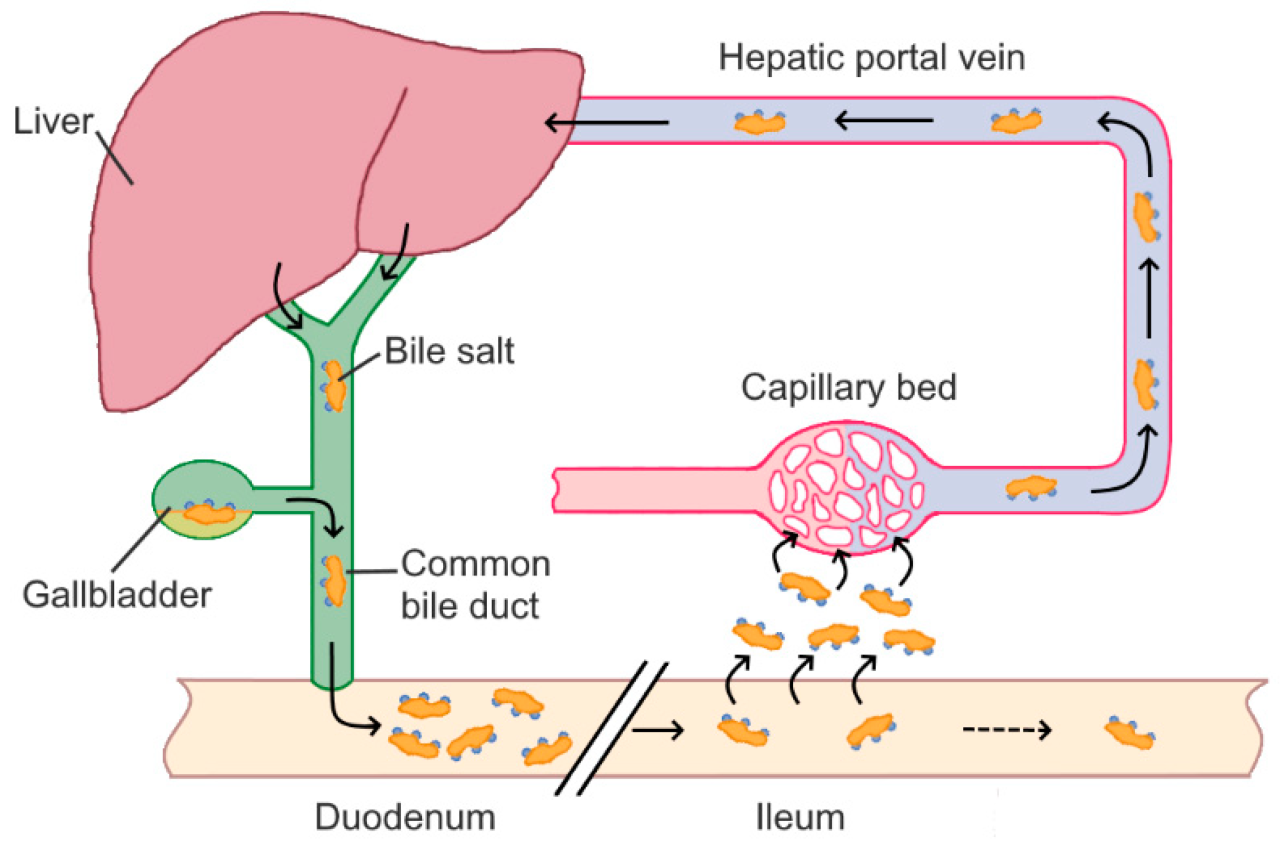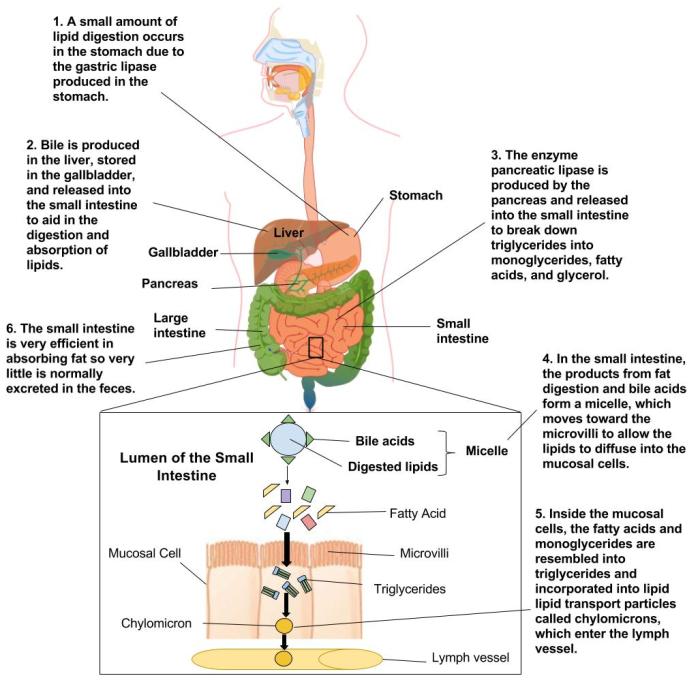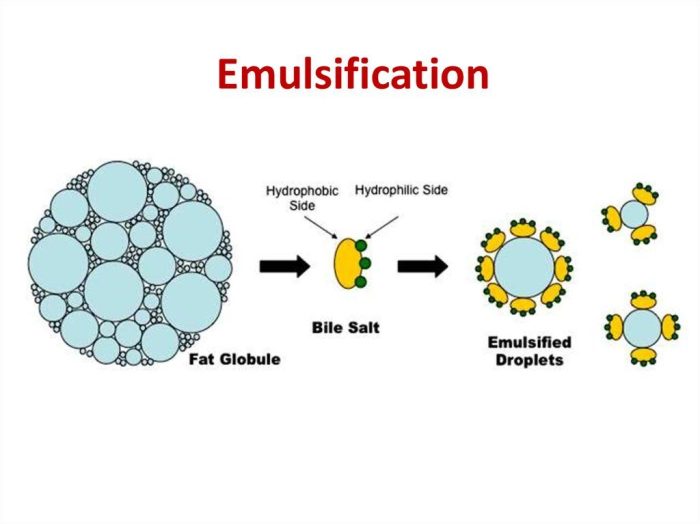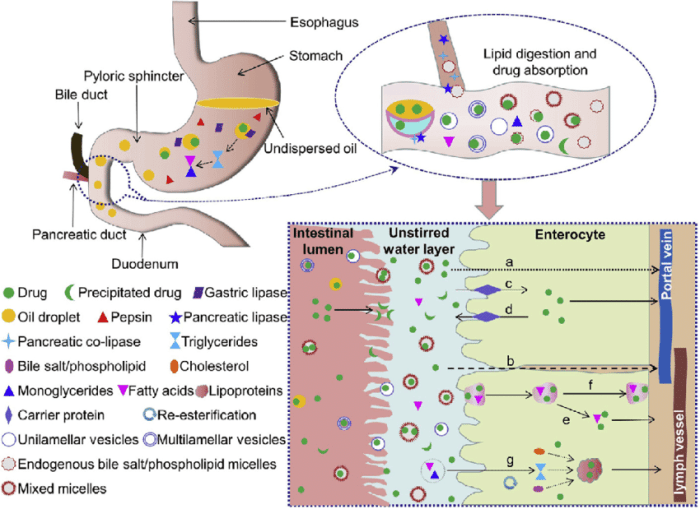Bile salts increase the rate of lipid digestion by pancreatin. – Bile salts increase the rate of lipid digestion by pancreatin, playing a crucial role in the digestive process. Their unique properties and interactions with lipids facilitate efficient breakdown and absorption of fats, ensuring optimal nutrient utilization.
The chemical composition and properties of bile salts, as well as their mechanism of action in lipid digestion, will be explored in this comprehensive analysis. We will delve into the evidence supporting the increased rate of lipid digestion by pancreatin in the presence of bile salts, discussing potential mechanisms and clinical implications.
Role of Bile Salts in Lipid Digestion: Bile Salts Increase The Rate Of Lipid Digestion By Pancreatin.

Bile salts are amphipathic molecules that play a crucial role in the digestion and absorption of lipids in the digestive tract.
Chemical Composition and Properties of Bile Salts
- Bile salts are synthesized in the liver from cholesterol.
- They consist of a steroid nucleus with hydroxyl and carboxyl groups attached.
- Their amphipathic nature allows them to interact with both hydrophobic and hydrophilic substances.
Mechanism of Action, Bile salts increase the rate of lipid digestion by pancreatin.
Bile salts facilitate lipid digestion by:
Emulsification
- Bile salts disperse large lipid droplets into smaller ones, increasing their surface area.
- This emulsification process allows pancreatic lipase, a water-soluble enzyme, to access and hydrolyze the lipids more efficiently.
Effects on Pancreatin Activity
Studies have demonstrated that bile salts enhance the rate of lipid digestion by pancreatin.
Potential Mechanisms
- Bile salts may activate pancreatin by binding to its surface and inducing conformational changes.
- They may also facilitate the interaction between pancreatin and lipids, increasing the enzyme’s catalytic efficiency.
Clinical Implications
Bile salts are essential for optimal lipid digestion and absorption.
Health Conditions Affecting Bile Salt Production or Function
- Liver diseases (e.g., cirrhosis) can impair bile salt synthesis.
- Cholestasis, a condition where bile flow is obstructed, can lead to decreased bile salt availability.
Dietary Considerations
Certain dietary strategies can enhance bile salt production and improve lipid digestion.
Dietary Fiber
- Soluble fiber binds to bile salts in the intestine and promotes their reabsorption.
- This increased bile salt circulation enhances lipid digestion.
Question & Answer Hub
What is the significance of bile salts in lipid digestion?
Bile salts are crucial for lipid digestion as they emulsify fats, breaking them down into smaller droplets that can be more easily digested by enzymes like pancreatin.
How do bile salts enhance the activity of pancreatin?
Bile salts create a favorable environment for pancreatin to work by dispersing lipids into smaller droplets, increasing the surface area available for enzymatic action.
What are some dietary strategies to support bile salt production?
Consuming a diet rich in dietary fiber, especially soluble fiber, can stimulate bile salt production and improve lipid digestion.


